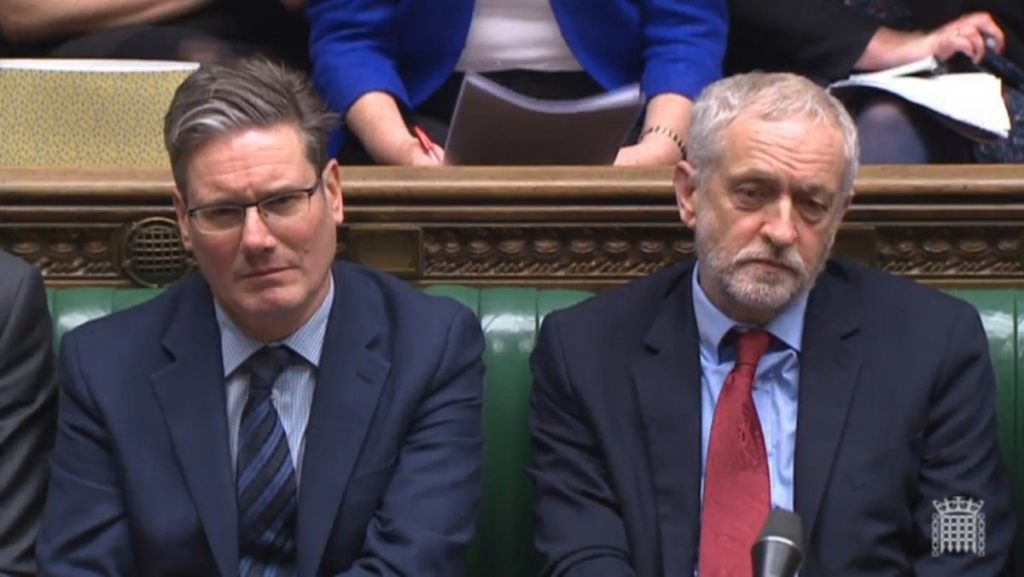Following a difficult week for the Prime Minister, given the fallout from the Owen Patterson affair, controversy over changes to the HS2 rail link, and plummeting poll ratings, the Labour leader has refused to say whether his predecessor would have done a better job than Mr Johnson.
Challenged on the BBC Radio 4 ‘Today’ programme this morning, Sir Keir Starmer declined on as many as five occasions to directly answer the question as to whether he believed that Mr Corbyn would have made a better Prime Minister, than Boris Johnson.
Responding to the question, Sir Keir initially said, “The public gave us our verdict on that argument, pretty strongly in 2019”, before avoiding the question again by stating that, “A Labour government would be far better than the government we have got”.
Given further chances by interviewer Justin Webb to say that he thought Jeremy Corbyn would have been a better Prime Minister than Mr Johnson, Sir Keir Starmer then said, “We lost very badly in 2019, and my job as Labour leader has been to change our party and turn it round, and that is what we have been doing”.


Detailing how he was reforming the Labour Party, Starmer said, “I appreciate that the rule changes that we had at conference are a boring process, but they don’t half show that we have changed the Labour Party, and set out a positive case for the future”.
Despite previously serving under him in the Shadow Cabinet as Shadow Brexit Minister, Sir Keir Starmer oversaw the suspension of Jeremy Corbyn from the Parliamentary Labour Party in 2020. The move followed Mr Corbyn’s response to the Equalities and Human Rights Commission’s investigation into the handling of anti-Semitism complaints by the Labour Party.
Between 1997 and 2010, Jeremy Corbyn was a constant opponent of the previous ‘New Labour’ government. Between 1997-2010, he rebelled against the Labour Whip 428 times, making him by far the most rebellious Labour Member of Parliament at the time.
Whilst he failed to cut through to voters in 2019, allies of Mr Corbyn, have previously pointed to figures showing how the Labour Party’s membership grew by 198,000 between 2015 and 2018 under his leadership.









